7 ways to maintain mental health as the semester ends
7 ways to maintain mental health as the semester ends
The fall 2020 virtual semester has proven difficult for many college students.
While combatting the usual semester stress, students have also been forced to navigate many unfamiliar challenges surrounding virtual learning and the global COVID-19 pandemic. Even as the semester progresses into its final month, college students must be consistently aware of their physical and mental health.
During the pandemic, “there are a number of threats to our well-being in the form of health risks, reduced access to socialization, political tensions and financial strain,” said Afton Kapuscinski, assistant teaching professor in Syracuse University’s College of Arts and Sciences and director of the Psychological Services Center. “The assault of potential hazards means that we probably have to be more conscious of attending to our emotional needs and make purposeful choices that support positive mental health.”
This semester during COVID-19, students’ typical coping strategies may not work as well when adjusting to online learning, social restrictions and increased health risks, Kapuscinski said. So, here are some COVID-friendly, independent ways to help maintain your mental and physical well-being for the remainder of the semester:
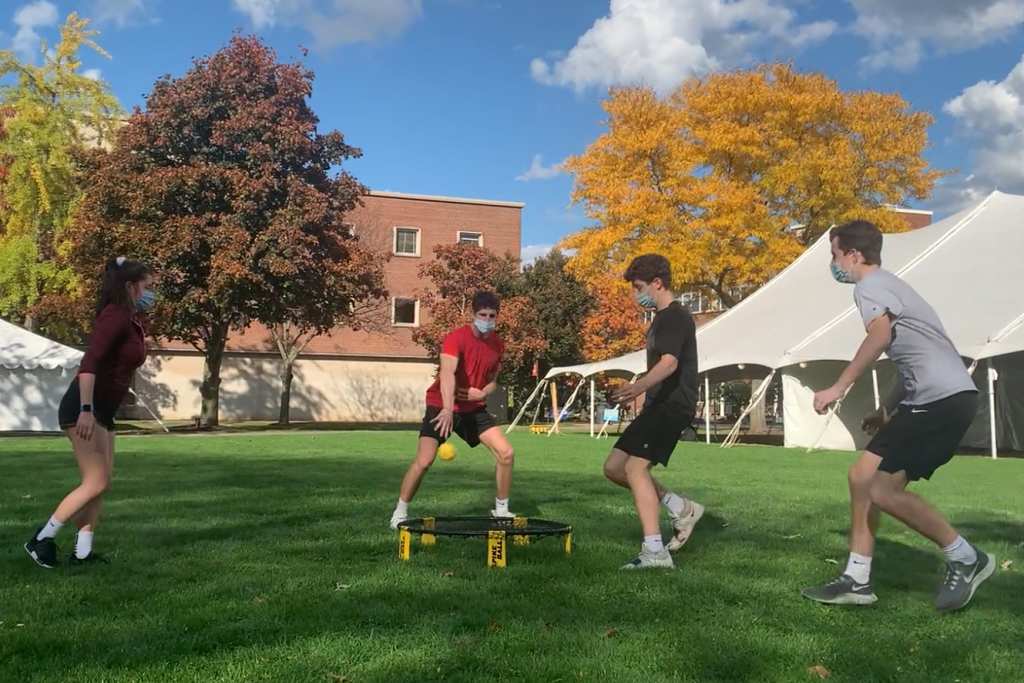
Exercise Daily
More often than a typical semester, students are confined to living spaces and attached to devices for classes, so it is essential that you take time each day for a physical and mental break.
Physical activity is known to produce endorphins and reduce adrenaline and cortisol in our bodies, which betters our moods and lowers our stress levels. According to the Centers for Disease Control and Prevention, “Even one session of moderate-to-vigorous physical activity reduces anxiety, and even short bouts of physical activity are beneficial.”
For non-gym lovers, exercising does not necessarily mean going to the gym. Physical activity can involve playing a round of socially distant Spikeball with friends, running, taking a virtual dance class or any other form of physical activity that’s enjoyable for you.
Taking time for some physical activity each day – whether that be 30 minutes or an hour – will help you tackle your daily tasks with a much healthier, clear mindset.
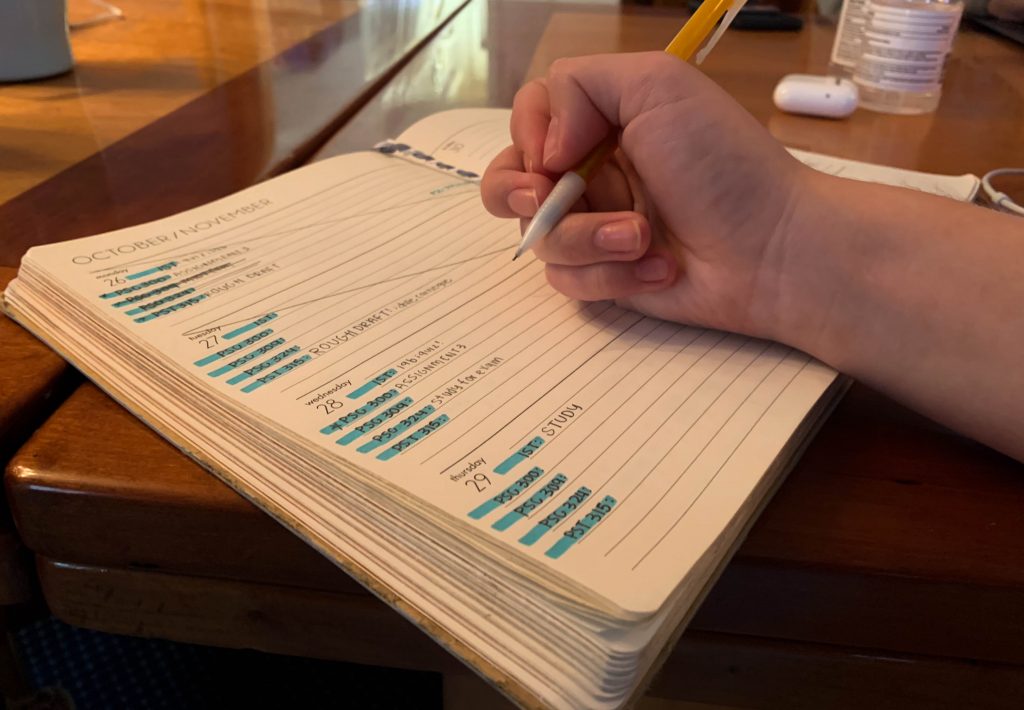
Stay Organized
With a mix of in-person, hybrid and online classes this semester, there is an added “learning curve” for SU students, according to Kapuscinski.
Keeping track of what is expected of you in every class is extremely important so that you are never blind-sided by due dates or exams. Stay organized with things like planners, calendars, checklists, folders and other resources. These will help make sure all of your assignments are getting done and you manage your time efficiently.
It is easy to get overwhelmed by assignments, exams and other deadlines, especially as SU approaches finals season. However, knowing what is expected of you and organizing all of your work, whether that be on a device or in a notebook or folder, will help you get through it.
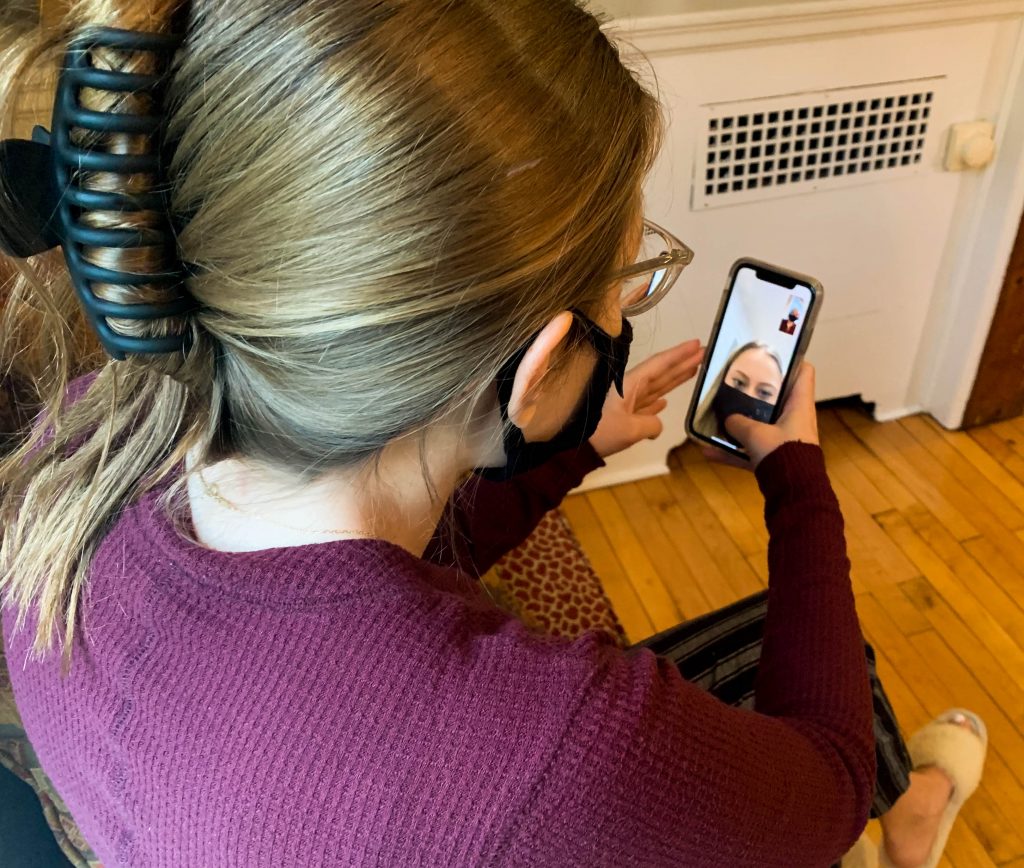
Connect with family and friends
It can be easy to get lost in academic stressors, but students should pay equal attention to the mental impact that social distancing, in-person gathering limitations and travel restrictions has on them this semester.
“According to a study from the American Psychological Association, the lack of social connection heightens health risks as much as smoking 15 cigarettes a day,” wrote Hackensack Meridian Health. “‘Being connected to others socially is considered an important human need and is vital to one’s well-being.’”
All of these restrictions and social changes does not mean that you are alone. Making time to virtually check in with loved ones can help you feel more connected to others during such an isolated period. Whether it be a text, phone call, video call or even social media communication, catching up with loved ones during these unfamiliar times can offer you a sense of comfort as you navigate the semester.
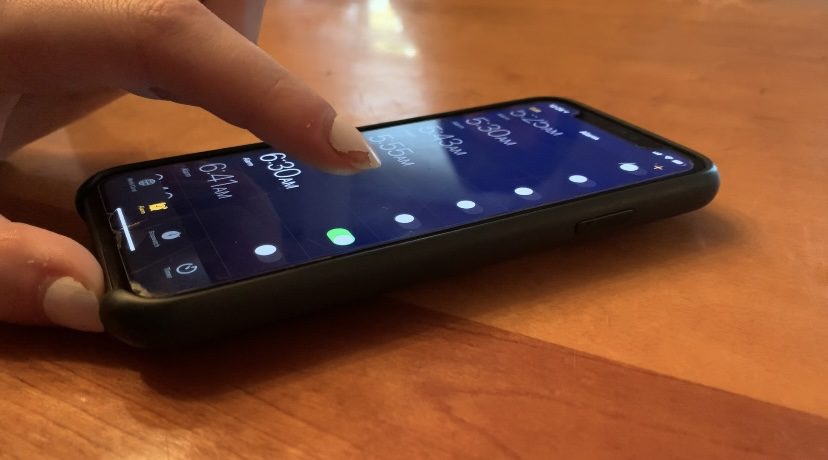
Create Daily Routines
Normal routines, like going to class or attending extracurricular activities, may not be possible every day because of the pandemic.
“‘The pandemic has left many people feeling adrift because those daily routines that were essential to us before the COVID-19 crisis have evaporated and been replaced by uncertainty and a lack of structure that can contribute to stress, anxiety and even clinical depression,’” according to Hackensack Meridian Health.
It is important to establish daily routines for yourself, like getting enough sleep, getting ready in the morning, exercising, eating at certain times and completing course work. These routines will hold you accountable for getting things done in an organized way, and, in return, will decrease your stress and anxiety levels as you navigate a busy day.
Having routines means creating “a balance between completing academic work, socialization and leisure time,” Kapuscinski said. Finding out what that balance means for you can take some time but is helpful to benefit your mental well-being.
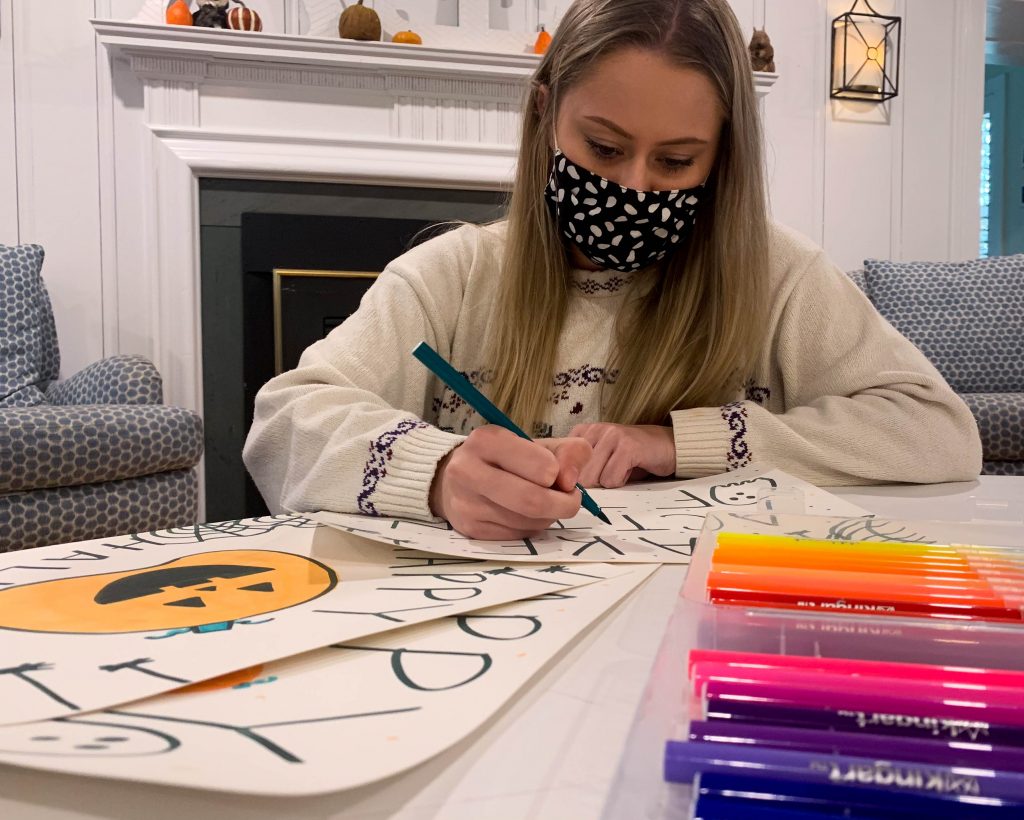
Practice mindfulness
Mindfulness practices have proven to be a powerful force for combatting stress, anxiety and other mental health struggles.
For example, “a study on mindfulness and emotion regulation in college students found that higher levels of mindfulness predicted better regulation of emotions and suppression of thoughts,” Positive Psychology reported. “Better self-regulation and self-control contribute to the more effective positive inhibition of destructive behaviors and, in turn, greater psychological well-being.”
Mindfulness activities range from meditation, reading or writing, yoga, breathing exercises and other related activities that focus on relaxing your mind, body and breath.
These practices will give you time to break away from your computer screens, class assignments, and other daily stressors, to relax and reset. Incorporating a short mindfulness practice in between tasks can help your overall mental and physical health by regulating stress, improving your mindset, and helping your physical health.
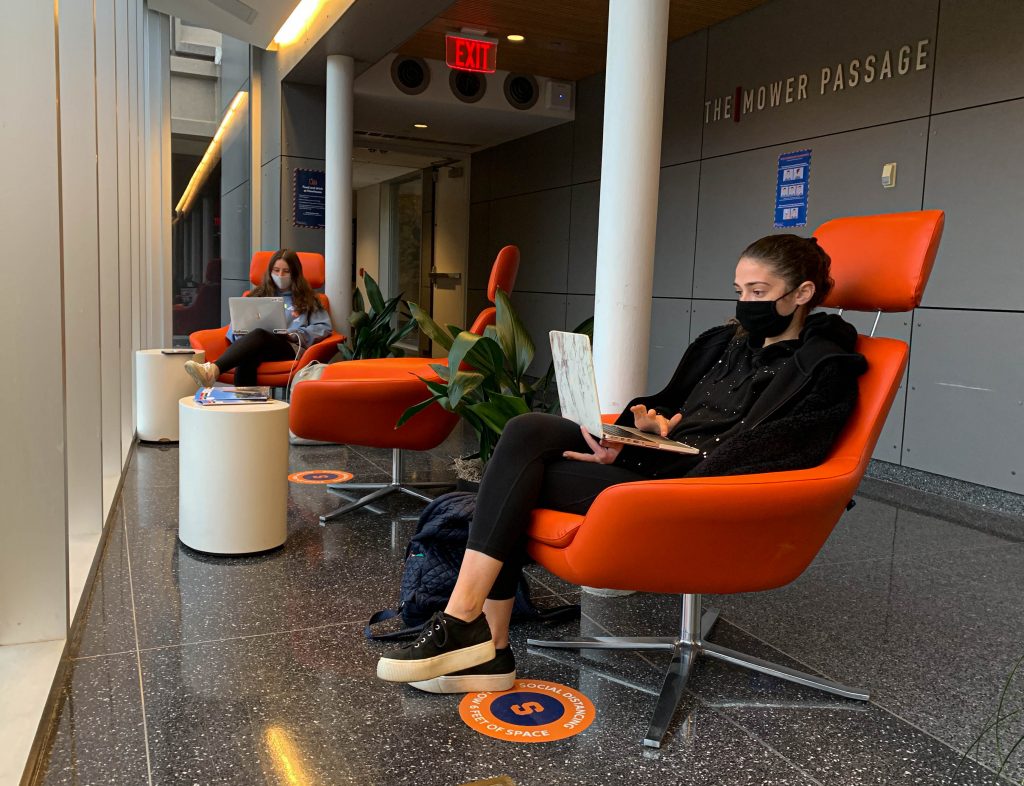
Comfortable Study Spot
This semester, the amount of time you spend in your room or living space has increased due to virtual classes and COVID-19 restrictions, but this does not require you to stay there all day when completing daily course work.
A change of scenery to get work done and study for exams can increase your productivity and help you feel less isolated during the virtual semester.
There are many comfortable, quiet locations on campus for students to focus. Some great study spots include the Mower Passage in Newhouse, the Institute for Veterans and Military Families, People’s Place Café, and Eggers Café, among other locations.
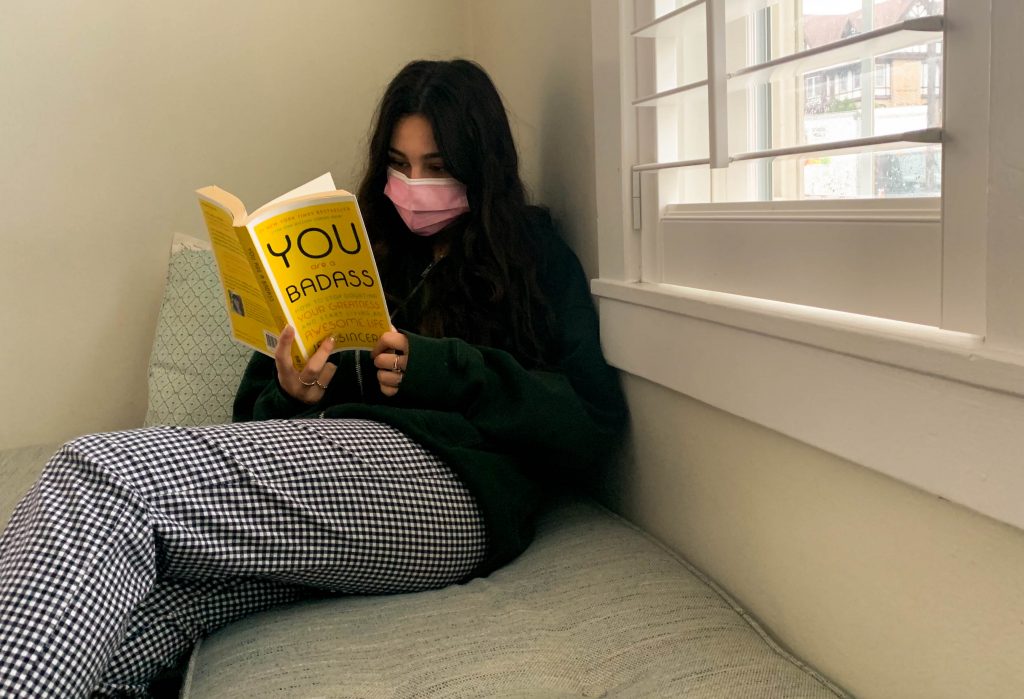
Limit Screen Time Outside of Class
The time spent on our digital devices has only increased since the pandemic began. With more classes online, it seems like students are spending practically entire days staring at computer or phone screens.
Exposing your mind and body to screens all day can affect your physical health. According to Rally Health, adults who spend 11 hours a day looking at screens can experience strained or dry eyes, headaches, bad posture, increased sleep troubles and other symptoms.
To avoid this physical harm, it is important that before, after and in between classes, you find time to put down your phones and shut down your computer screens.
Instead of watching Netflix after class or spending time online shopping, try finding a new hobby that is not technology-based. For you, this could be reading, drawing, exercising or just spending time with friends. Doing so can help your physical well-being as well as allow you to discover new interests and pastimes.





